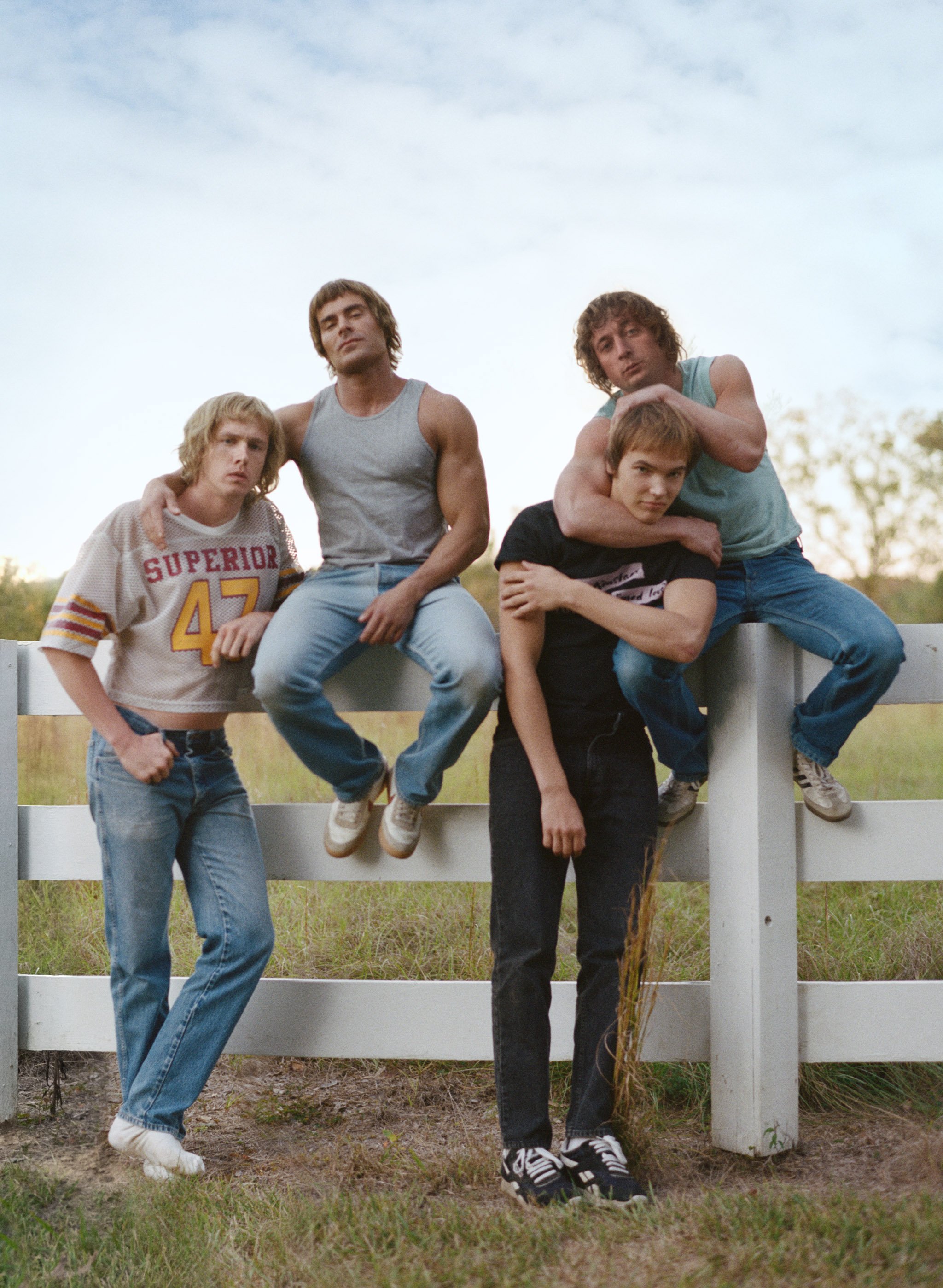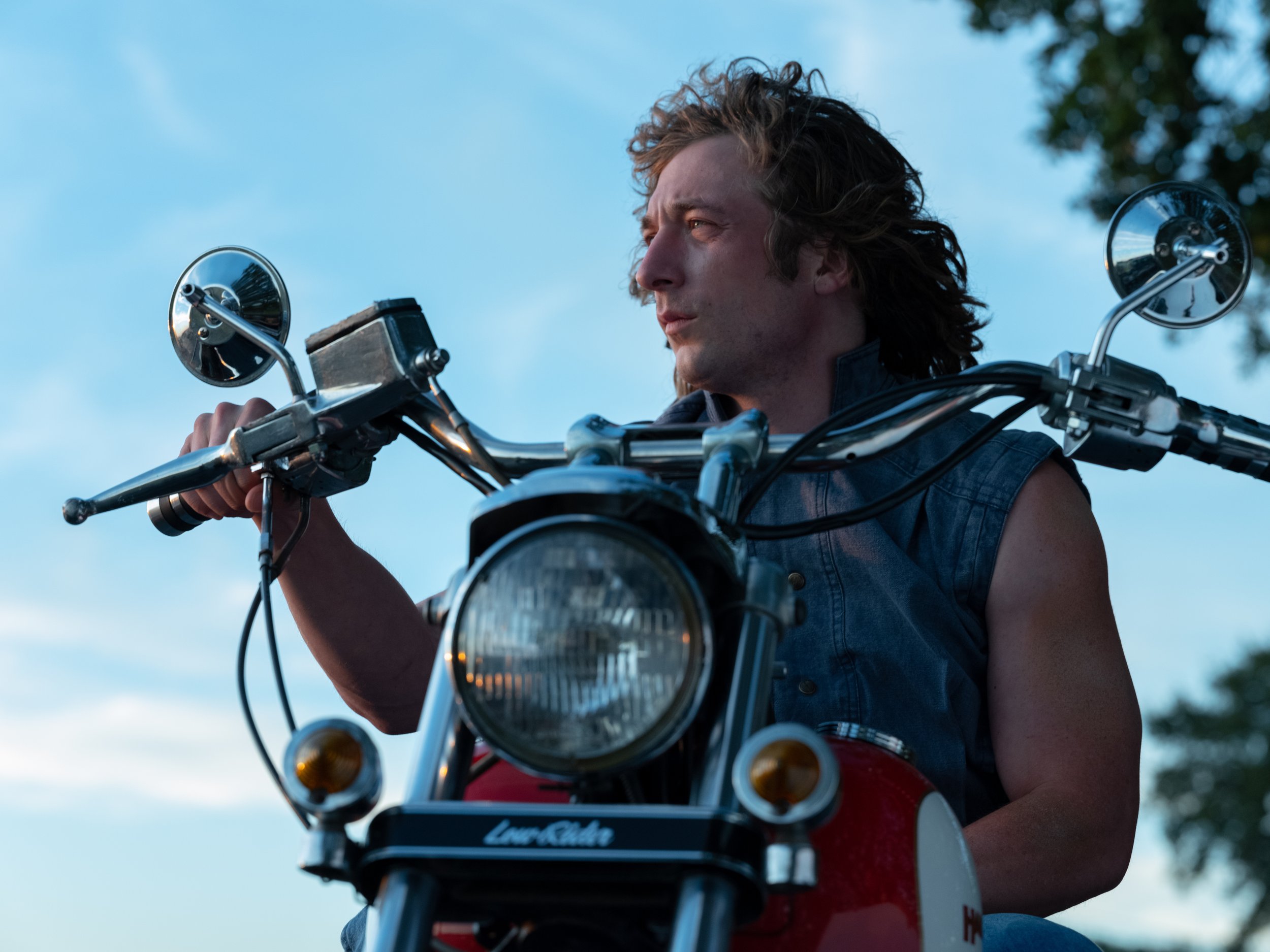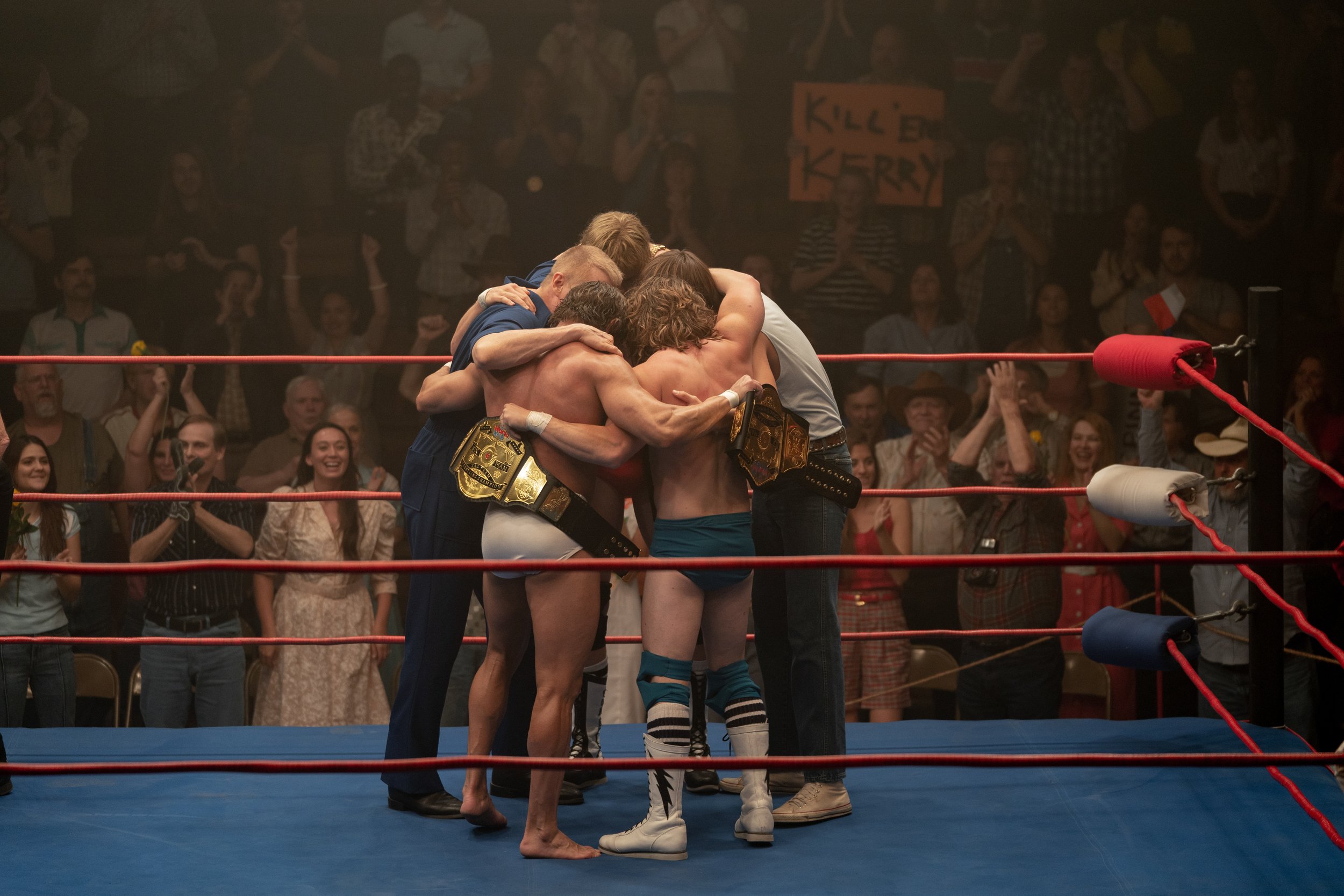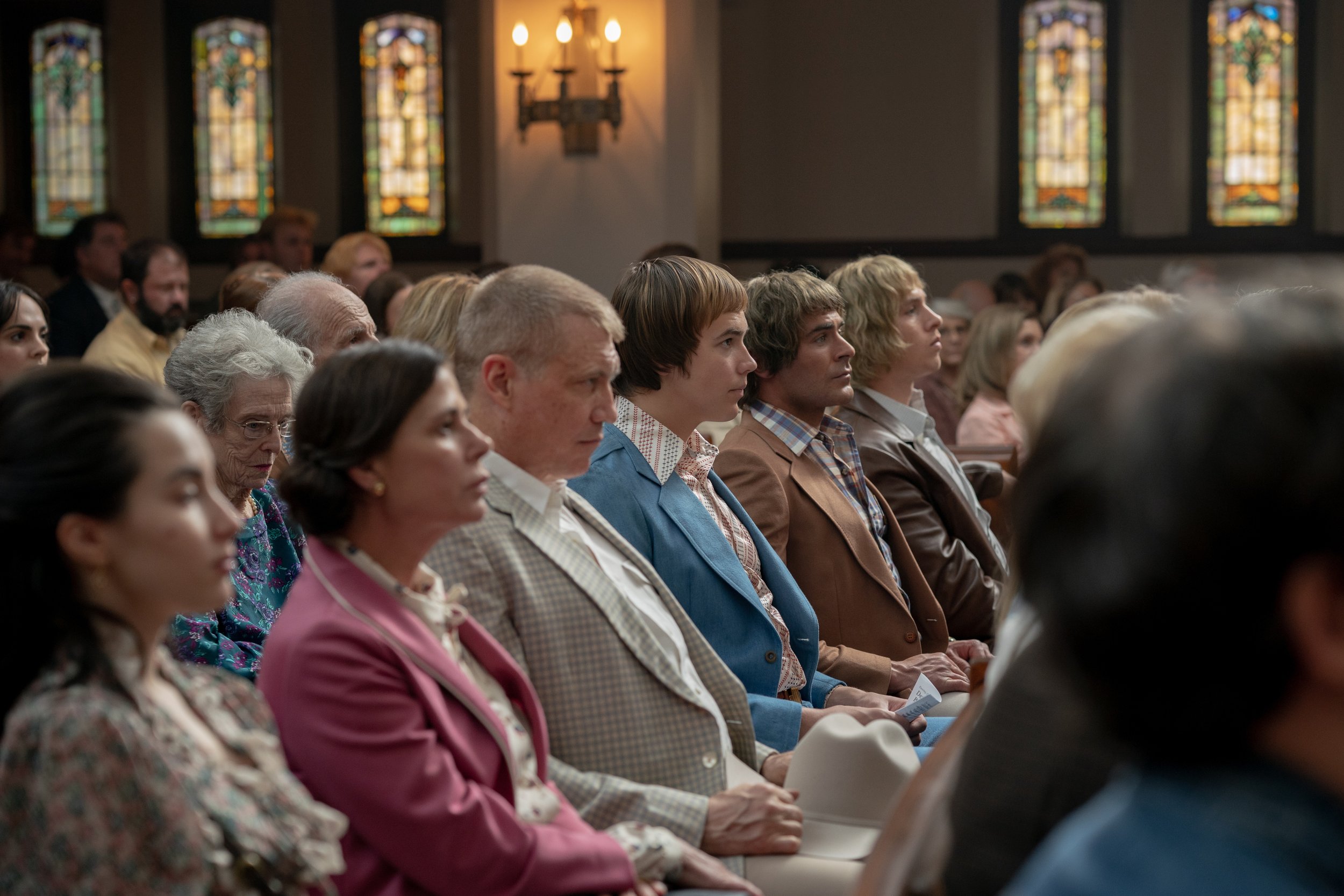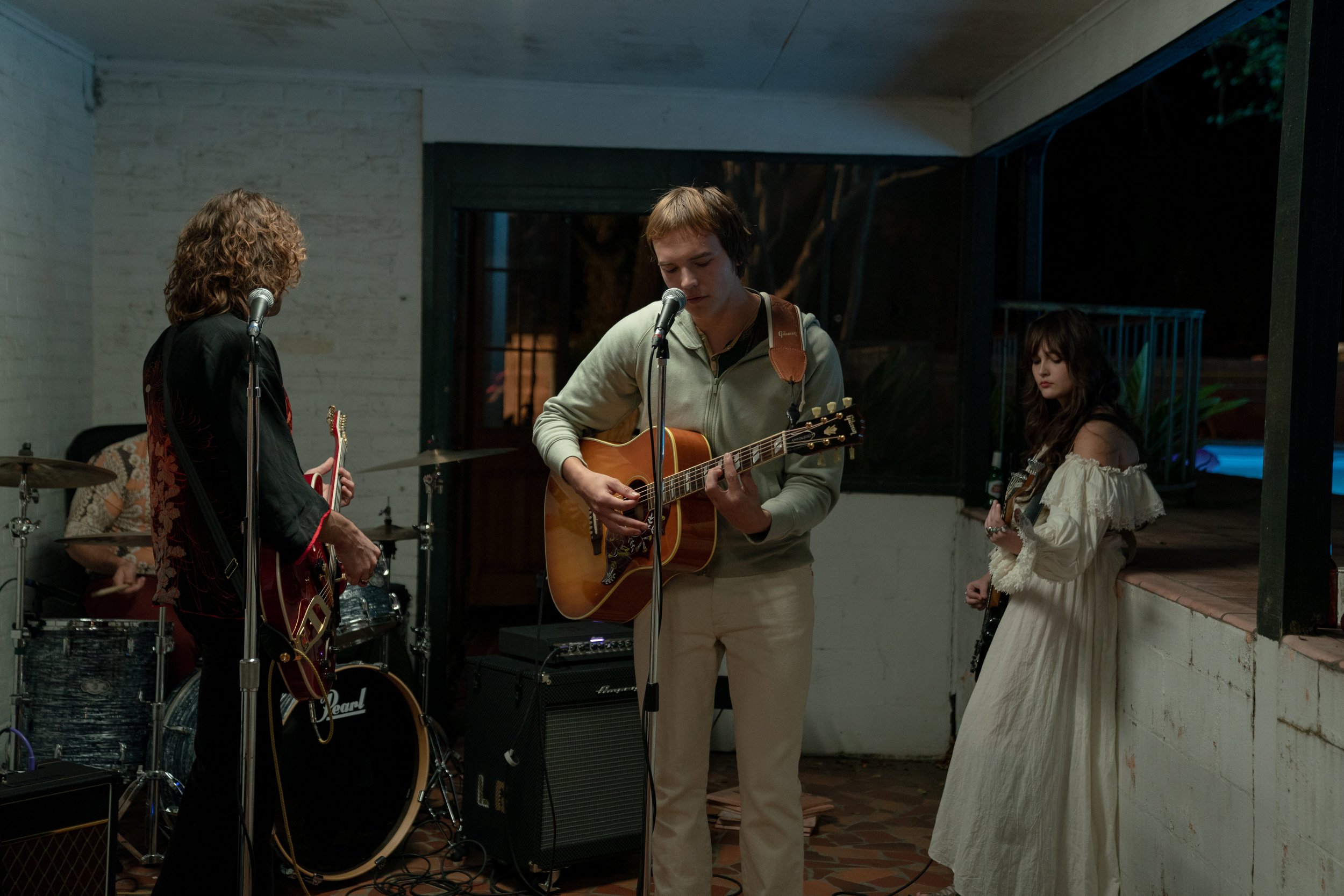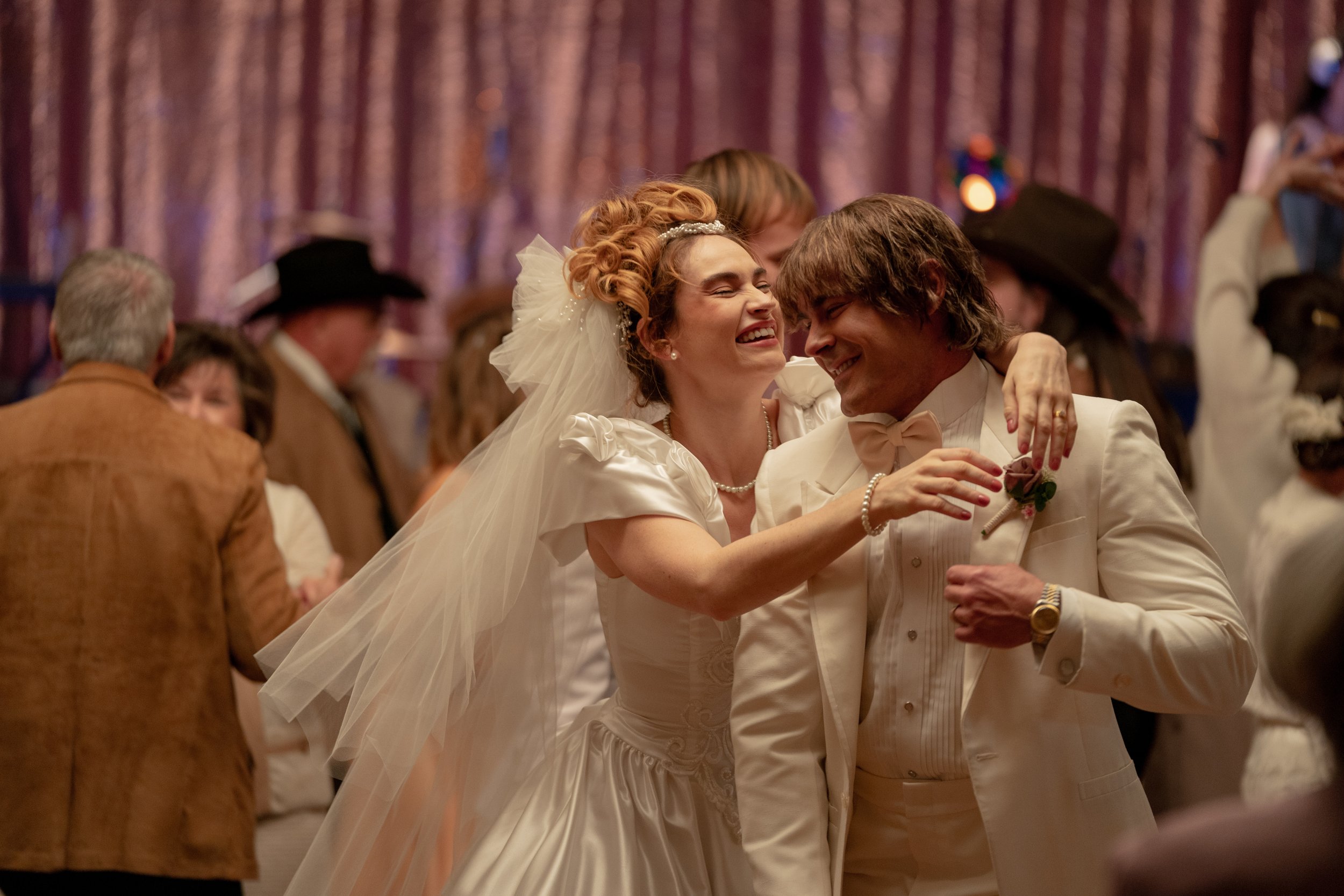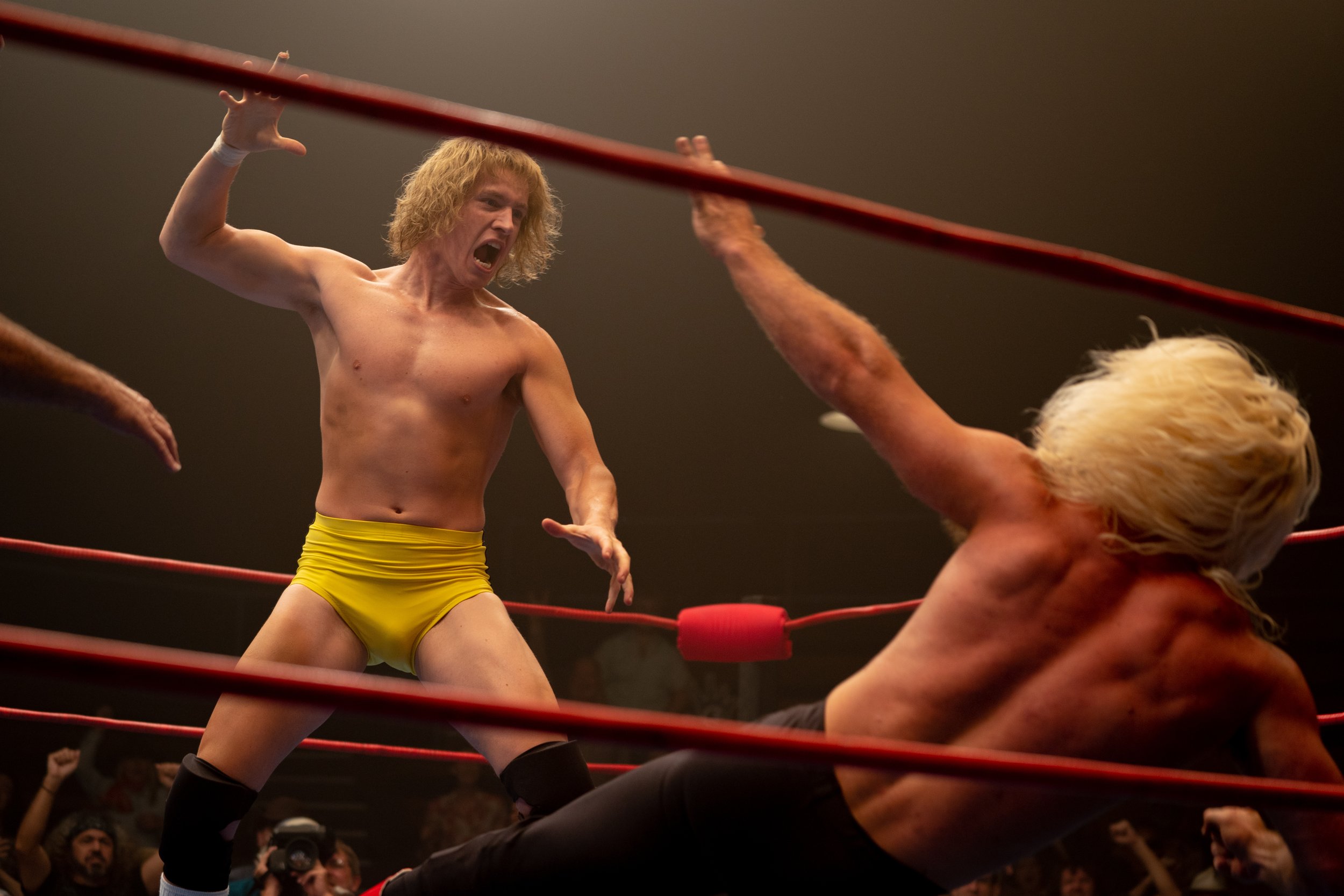MOVIE REVIEW: The Iron Claw
THE IRON CLAW– 5 STARS
Let’s just say it now upfront. Folks are going to walk up completely unprepared for The Iron Claw. They’re going to see the old school wrestling setting and the ripped bod of Zac Efron and swoon a little. They’re going to want, as one WWE superstar of this era so hilariously expressed once, “big meaty men slappin’ meat.” That’s cute, but The Iron Claw is not No Holds Barred or Nacho Libre.
LESSON #1: PSYCH YOURSELF UP– They’re not going to know the true story of the Von Erich wrestling family chosen to be lionized in The Iron Claw. They’re not going to know the outright agony found in that history. Maybe they’ll find some toughness to say they’ve seen Darren Aronofsky’s The Wrestler and can take a few emotional hits. Good for them, but the sweeping hardness to absorb in The Iron Claw makes The Wrestler look like a pillow fight by comparison. No matter what, viewers are going to have to psych themselves up like one of the many spandex-wearing gladiators shown in this movie. Be ready to have your heart crushed multiple times over, because what’s coming puts Shakespeare and the Greeks to shame in the tragedy department.
LESSON #2: HOW DO YOU FIND LIFT IN TRAGEDY– Before you swipe over to Wikipedia to look up the Von Erich family to peek at what you are getting yourself into, rest assured The Iron Claw is not out for tragedy porn. Standing tall on its own “Sons. Brothers. Champions.” tagline, the aim from writer-director Sean Durkin is to rise up from sorrow with the strength of family outmuscling the spectacle of wrestling. Come and bear witness that powerlift and what will stand to be one of the best films of 2023.
Beginning in the 1950s with the patriarch Jack Adkisson, Sr. (Holt McCallany of Men of Honor and Fight Club) donning the heel ring name of “Fritz Von Erich,” a family tradition in professional wrestling was born, complete with the titular finishing submission maneuver that brought crowds to their feet. After his own prime years on the mat, Jack would go on to own and operate the World Class Championship Wrestling promotion out of the Sportatorium venue in Dallas, Texas. Before the hey-day of the juggernaut World Wrestling Federation, Jack’s WCCW scored a TV deal with the then-fledgling ESPN television network that gave them national and international attention.
Jack and his wife Doris (a rock-steady Maura Tierney) would have six sons. After Jack Jr. died at the age of six from electrocution and drowning, the remaining five were bestowed the stage surname, trained at home, and pushed towards success on their father’s WCCW platform. Living together on the family ranch in Denton County, the Von Erich boys– led by the next oldest Kevin (the top-billed Zac Efron)-- would become a sinewy posse of country-strong hunks of Texas manliness clad in either ring gear, tighty-whities, or the patterned fashions of the 1970s and 80s.
By 1979, the barefoot-preferring Kevin had climbed the singles ranks enough to earn a hometown title shot on WCCW against the reigning NWA champion Harley Race for the famed “Ten Pounds of Gold.” Training right behind Kevin for the right time to debut as a tag team partner was David (Harris Dickinson of Triangle of Sadness), dubbed “The Yellow Rose of Texas.” Away from the ring, the fifth youngest and least athletic son Mike (newcomer Stanley Simons) was trying his hand in music while their fourth son Kerry (The Bear superstar Jeremy Allen White) was earmarked to become an Olympian in discus at the 1980 Summer Olympics in Moscow before the United States pulled out of attending the Games in a chess move of Cold War politics.
LESSON #3: THE RESPONSIBILITY OF FAMILY LEGACIES– Through Fritz’s firm guidance after seeing his own career marginalized by outside competitors, his boys were taught to rely on no one but themselves. That went for internal discipline as well, as there was no crying to mama Doris, who stayed entirely out of the business. Repeated often in The Iron Claw, the Von Erich family mantra was the collected superlatives to be “toughest, strongest, and most successful.” With the lineage’s hopes centered on Kevin’s in-ring expertise, David’s growing charisma on the microphone, and the introduction of Kerry’s pure athleticism, familial pressure was multiplied by high wire of performing for audiences with the lights and cameras on.
To achieve great-looking “rasslin’” on screen, Son of Saul cinematographer Mátyás Erdély favored closer shots to bring the Steadicam right into the squared circle where you smell the sweat. Director Sean Durkin (Martha Marcy May Marlene) orchestrated a camaraderie of his own on set. Supervising stunt coordinator Hiro Koda (Stranger Things) employed former champion Chavo Guerrero Jr. (no stranger to tragic wrestling families himself) as the wrestling coordinator to bump these lead actors and their stunt doubles convincingly off mats, ropes, turnbuckles, and colorful opponents. Their guidance and tutelage was instrumental to create accuracy and spectacle.
LESSON #4: THE BELIEF IN FAMILY CURSES– Alas, this is where those pro wrestling fans among you readers tighten your grip on your chair because, once again, you know what’s coming. At the peak of their unified wrestling potential and not long after Kevin marries his sweetheart Pam (the always-fetching Lily James), the sunny Texas skies darken with foreboding clouds in The Iron Claw. Sadly, the death of little Jack Jr. in 1959 would not be the last one to beset the Adkisson family, as seemingly a “curse” would begin. Over the course of a single decade from 1983 to 1993, only one of six Adkisson children would still be alive. Four of the six would never see the age of 30. No matter what is written in this movie review, little can prepare you for what comes.
LESSON #5: TELL, DON’T SHOW– Despite the pugilistic setting and a R rating for content, Durkin’s script called for no death scenes filmed by Erdély (and it even leaves one lost brother, Chris, completely out of the entire movie, sparring us one more trip into the exponential darkness). What is present are the impactful scenes right before a death, whether it’s a moment of bliss or a final low point of pain voicing a line like, “Tonight, I walk with my brothers.” The realization of those fleeting moments– seeing someone alive for what would be the last time among their loved ones– hits you like a wrecking ball because the characters before you (and the actors playing them) are as raw as they can be. The emotions skyrocket because the cuts from those types of scenes to an aftermath force you to imagine the true final moments in your own mind, and that, as we movie audiences know, is almost always worse than explicitly shown acts.
It is at those jarring pivot points where The Iron Claw leaves most of the body slams and suplexes behind to envelop itself in the wake of those gradually compounding tragedies. Durkin’s emphasis was not to sensationalize a curse but carry a thoughtful approach on how repetitive losses affect a family. In doing so, and with no slight to impressive and magnetic up-and-coming talents like Harris Dickinson and Jeremy Allen White, three actors rise above the rest of the ensemble.
As Fritz, Holt McCallany– a longtime tough guy character actor– looms large as the flawed iron everyone is trying hopelessly to sharpen themselves against. His domineering figure shapes and enhances career-best big screen work from Maura Tierney and Zac Efron. Even in simple domestic moments (like trying to pick a different black dress to wear at another funeral), Tierney gives voice to a wife and mother’s helplessness on the sidelines of harmful male ambition. Embodying the weight of protective big brother syndrome and reaching far ahead of the likes of Baywatch and his talents on a microphone, Zac Efron finally reached the acting potential to match his prodigious muscles in The Iron Claw. Thanks to these three and the entire mood around every ordeal, The Iron Claw stands with its proverbial hand held high to be one of the most powerful films of 2023 and one of the damndest stories of brotherhood you’re going to find.
LOGO DESIGNED BY MEENTS ILLUSTRATED (#1162)


